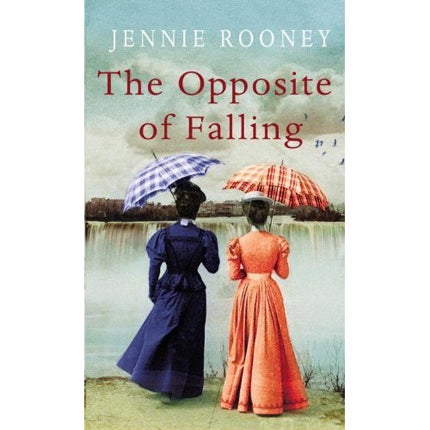The Opposite of Falling, By Jennie Rooney
Writing as sharp as a new pin

Your support helps us to tell the story
From reproductive rights to climate change to Big Tech, The Independent is on the ground when the story is developing. Whether it's investigating the financials of Elon Musk's pro-Trump PAC or producing our latest documentary, 'The A Word', which shines a light on the American women fighting for reproductive rights, we know how important it is to parse out the facts from the messaging.
At such a critical moment in US history, we need reporters on the ground. Your donation allows us to keep sending journalists to speak to both sides of the story.
The Independent is trusted by Americans across the entire political spectrum. And unlike many other quality news outlets, we choose not to lock Americans out of our reporting and analysis with paywalls. We believe quality journalism should be available to everyone, paid for by those who can afford it.
Your support makes all the difference.There is something to be written about novelists who suppress their early work. Although Ivy Compton-Burnett, Graham Greene and Sebastian Faulks have done so, it is unimaginable that Jennie Rooney would disown her first novel, Inside the Whale.
That adroit, observant tale of love rediscovered across the generations made it immediately clear that here was a natural novelist who combined the elegantly outlandish with an episodic structure.
As did that other lawyer turned novelist, Hilary Mantel, Rooney looks set to take a different approach every time. Her second novel takes place in the later 19th century. Again she switches between the point-of-view of several narrators while not shying from interior monologue.
Spinster Ursula Bridgewater has inherited money but her fiancé has taken up with another woman. Across the Atlantic, at Niagara Falls, Toby O'Hara lost his mother in one of his father's early experiments in flight, something which has not curtailed his own endeavours to defy gravity, as he seeks solace with a taste for Thomas Cook's early forays into organised travel. Ursula makes bold to visit America, and takes with her as a companion Sally, an orphan who has spent her early years in a nunnery. If these are damaged lives, there is nothing fragmentary about Rooney's development of the way in which their paths overlap.
To say any more would be unfair. Briskly told, Rooney's novel is not burdened by excessive detail. As effortlessly as Proust or Forster, she incorporates unexpected aperçus. Wisdom is lightly borne. At every turn there are such remarks as "she knew it was a sign of madness to be able to draw a perfect circle". As for Ursula's collapsed engagement, she had thought that loneliness "would have a sharp, new-pin quality to it. She found that, in reality, loneliness was not much more than a muffling of the senses. It had nothing of the new pin about it. It did not sparkle or break the skin. It was just a grey, mouth-dry silence, and it bored her." No word here is outré, but they combine in such a way that "mouth-dry silence" is very much a linguistic new pin.
It will be more than interesting to see whether Rooney produces different narrative structures, even favouring a loose, baggy monster. In the meantime, her work should inspire a canny producer to ask her to write a screenplay.
Join our commenting forum
Join thought-provoking conversations, follow other Independent readers and see their replies
Comments